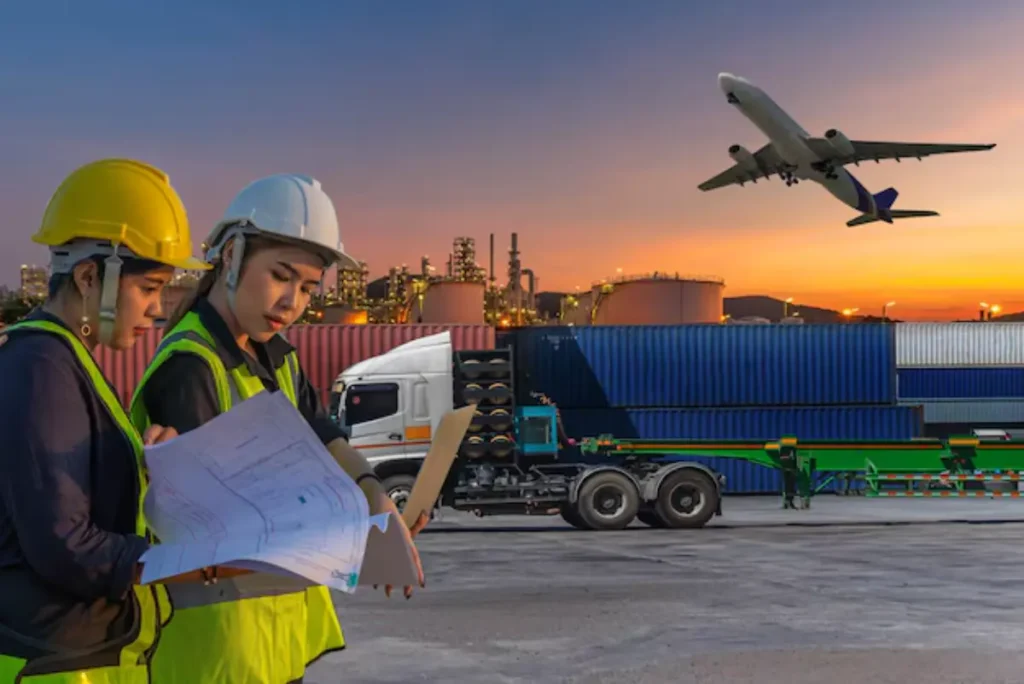Running a small or medium-sized enterprise (SME) is never easy. From managing finances to finding customers, business owners already carry a lot on their shoulders. One area that often feels overwhelming is shipping goods across borders. But here’s the good news: international logistics services can help SMEs compete with bigger companies and grow beyond their local markets.
In this blog, we’ll break down exactly what international logistics means, why it’s important, and how SMEs can use it to their advantage. The goal is to keep things simple and professional, so even a beginner can clearly understand the benefits.
What Are International Logistics Services?
International logistics services involve the planning, movement, and management of goods from one country to another. This includes:
Freight forwarding (air, sea, rail, or road shipping)
Customs clearance (handling paperwork and legal requirements)
Warehousing and storage
Distribution and delivery
Supply chain management
For an SME, managing all of this on their own can be too complex and expensive. That’s why many businesses partner with logistics providers who specialize in making international trade smooth and stress-free.
Why International Logistics Is Crucial for SMEs?
SMEs may not have the same resources as big corporations, but they do have one big advantage: flexibility. By using international logistics services, they can take their flexibility to a global level. Here’s why it matters:
Access to New Markets Logistics services make it possible for SMEs to sell their products outside their home country. For example, a small clothing brand in Pakistan can easily ship to customers in Europe or the Middle East.
Cost Savings Logistics companies already have systems, contracts, and expertise in place. SMEs can save money by using these existing resources instead of building everything from scratch.
Time Efficiency Instead of worrying about customs, shipping schedules, and port delays, SMEs can focus on their core business. The logistics provider handles the heavy lifting.
Professional Expertise With experts managing the shipping process, businesses reduce mistakes that could cost them money or harm their reputation.
Key Benefits of International Logistics for SMEs
Let’s dive deeper into the main advantages SMEs gain from partnering with international logistics providers:
1. Simplified Customs and Documentation
Paperwork is one of the biggest headaches in cross-border trade. A single missing form can delay shipments for weeks. Logistics providers handle:
Import and export documents
Tax and duty payments
Compliance with international laws
This ensures goods move smoothly without unnecessary delays.
2. Cost-Effective Shipping Solutions
SMEs usually cannot negotiate lower shipping rates on their own. Logistics providers, however, handle shipments for many clients at once and get bulk discounts. They pass some of these savings on, allowing SMEs to enjoy competitive shipping costs.
3. Faster and Reliable Deliveries
With multiple transport options—air, sea, rail, and road—logistics providers help SMEs choose the best mix. This ensures goods reach customers quickly and reliably, building trust and repeat business.
4. Better Supply Chain Management
For SMEs, keeping track of inventory across countries can feel impossible. Logistics services offer:
Real-time tracking systems
Warehouse management
Distribution planning
This improves efficiency and helps SMEs meet customer demands without overstocking or running out of products.
5. Flexibility to Scale Up
SMEs don’t always ship the same amount of goods. Sometimes they need to move small parcels, and other times, bulk containers. Logistics providers offer flexible solutions that adapt to changing needs, helping SMEs grow without worrying about shipping limits.
6. Risk Management
Shipping goods internationally comes with risks—delays, damage, theft, or even accidents. Logistics providers reduce these risks through:
Insurance coverage
Secure packaging
Reliable carrier partnerships
This protection allows SMEs to focus on selling rather than worrying about what could go wrong.
Real-Life Example
Imagine a small business in Pakistan that sells handmade furniture. At first, they only sell locally. But with the help of international logistics services, they start shipping to Dubai and Saudi Arabia. The logistics partner handles customs, warehousing, and delivery.
Result? The business doubles its sales in a year and reaches markets it never thought possible—all without the owner having to learn the complicated world of global trade.
Key Factors SMEs Should Consider
Before choosing a logistics partner, SMEs should keep in mind:
Cost Transparency – Make sure all fees are clear upfront.
Network Coverage – Does the provider cover your target countries?
Technology – Real-time tracking and digital updates are important.
Experience – A logistics provider with a proven record is more reliable.
Customer Support – Fast and helpful support is critical when shipping globally.
The Future of SMEs and International Logistics
Global trade is growing faster than ever. E-commerce platforms allow SMEs to reach global customers instantly, but without reliable logistics, it’s almost impossible to compete. Logistics services are no longer just for big corporations—they are the backbone of small and medium-sized businesses aiming to expand worldwide.
With international logistics on their side, SMEs can:
Reach new markets
Offer faster deliveries
Save money
Build stronger customer trust
Want to expand your SME beyond borders?
Islo Logistics makes international trade easy with reliable, cost-effective, and flexible logistics solutions. From customs clearance to last-mile delivery, we’ve got you covered. Partner with Islo Logistics today and take your business global!
Frequently Asked Questions (FAQ)
Q1: Can SMEs afford international logistics services?
Yes. Logistics providers offer cost-effective solutions tailored to smaller businesses. SMEs can share cargo space and benefit from bulk discounts.
Q2: Do SMEs need to understand customs laws?
No. Logistics companies handle all customs documentation and compliance, so SMEs don’t have to worry about the details.
Q3: Which transport option is best for SMEs—air, sea, rail, or road?
It depends. Air is fast but costly, sea is affordable for bulk goods, rail is efficient for inland transport, and road is best for local delivery. Logistics providers help SMEs choose the right mix.
Q4: Can SMEs track their shipments in real time?
Yes. Most modern logistics providers offer online tracking systems for transparency.
Q5: What if a shipment gets delayed or damaged?
Logistics services often include insurance and risk management to protect SMEs from financial loss.

